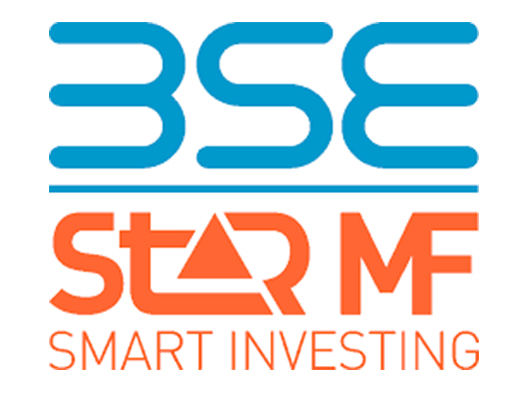
What are Index Funds
These are mutual funds that track one of the market indexes like Sensex or Nifty. The fund manager, here, does not get to select the stocks the fund will invest in. The fund portfolio will mirror the index that it tracks as accurately as possible.
Sensex is an index derived from 30 most actively traded stocks on the Bombay Stock Exchange (BSE). Similarly Nifty is the benchmark index of the 50 most actively traded stocks on the National Stock Exchange (NSE). Now the fund “HDFC Index Fund-S&P BSE Sensex” tracks Sensex where as “HDFC Index Fund-NIFTY 50 Plan” tracks the Nifty 50.
How are Index Funds Different from ETFs
The main difference between index mutual funds and Exchange Traded Funds (ETFs) is that index funds track market movements via Net Asset Value (NAV) which updates only at end of trading day. Whereas, ETFs track underlying asset value movement on the fly, throughout the day.
If we compare mutual funds vs index funds vs ETFs, mutual funds and index funds are fundamentally the same except that index funds do not have the flexibility to pick stocks and their weightage in its portfolio. ETFs have an advantage in short term investments over indexed funds. But in the long term, they are almost the same.
Index funds are popular with long term investors with a low risk investment. Especially for people looking for some passive income ideas, index funds are a good choice since they provide good returns with diversified risk.
How does an index fund work
These funds mimic the composition of the chosen index. They are passively managed funds, which means there is no stock research, risk mitigation, diversification that needs to be done by the fund manager. All of this is automatically taken care of by the index. The objective is to depend on the returns of the index over a long period without buying and selling securities very often.
How are Index funds Different from Actively Managed Funds
An index fund is a passively managed fund for the reasons mentioned above. Opposite to this, actively managed mutual funds often seeks alpha by doing more frequent purchases and sales, re balances to beat the market returns.
Here is the sector wise weightage of the Nifty 50 index which will be mirrored in the Nifty 50 index funds.
What are the Types of Index Funds
Primarily there are 2 types of index funds:
- Equity
- Debt
The funds that invest in stocks based on an index composition and weightage, is called an equity index fund. As opposed to this, a debt index fund tracks an index composed of Corporate Debt, Government Securities, Treasury bills, State Development Loans.
The best equity index fund is the ones that track the index as closely as possible. Ideally there should not be any difference between the index and the fund return but practically, there would be a slight deviation based on the time of tracking, weightage in the stock invested or rebalanced.
Pros and Cons of Index Funds
Investing in indexing funds has its pros and cons:
Pros
- Lower risk through diversification
- Low cost index funds
- Strong long-term returns
- Ideal for passive, buy-and-hold investors
Cons
- Vulnerable to market swings and crashes
- Lack of flexibility
- Limited gains
- Tracking Error
How to choose best index fund in India?
“Which index fund is best?” or “How to choose an ETF?” is the one-crore-₹ question. Let’s first understand that the “index” is only an imaginary entity, a logical group of stocks. Investment in an index is possible only via index funds or an ETF.
Tips to choose the right index fund/how to choose an ETF:
- Expense ratio
The admin cost of running the index funds is called the expense ratio. This value should be as small as possible, especially for Index funds which are passive investments.
- AUM
Size of the fund is measured by Assets Under Management (AUM). If the AUM is too small, the fund expenses are split between a smaller number of investors making the fund costlier. This should be higher value.
- Fund manager
Experience and prior performance of a fund manager should be taken into account before investing in an index fund to reduce tracking error.
- Tracking Error:
An index fund may not perfectly track its index. The deviation in the returns of the index fund from the returns of the index itself is called tracking error. This should be as low as possible, or at least consistently positive.
Conclusion
“How to select the best index fund”, for your portfolio, or “Which ETFs to buy” that fit your investment plans are questions we hope this article answers. One should assess the investment goals, timelines along with one’s risk appetite.
The index fund should fit into a larger financial plan to get the desired returns at the expected time. It helps to remember that an index fund is meant as a long term passive investment instrument.
Stay updated with the latest market and investment updates. Join Jama Wealth on Telegram, Linkedin, YouTube, Instagram, Facebook, Quora for more!
For high quality investment advice and to grow wealth, download Jama Wealth App on iOS App Store and Android Play Store.






















